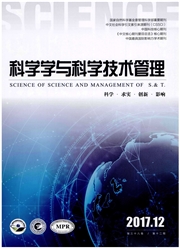

 中文摘要:
中文摘要:
BOT项目融资作为私人投资公共基础设施的重要形式越来越受到各国政府的重视,但目前许多BOT项目都出现了政府过度担保和项目再谈判的现象,使社会效益受到损失。其原因主要是项目激励作用没有得到充分发挥,特别是BOT项目特许期作为激励手段没有体现出来。利用委托——代理理论研究了BOT项目中政府与项目公司之间的委托——代理关系。通过确定政府与项目公司的分成比例,建立了BOT项目的特许期决定模型;通过研究激励相容机制,确定了项目公司最优产量决定模型。结果表明,BOT项目特许期与项目的收益呈正相关关系,与项目成本呈负相关关系,同时与项目本身的风险大小程度和项目公司对待风险的态度有关。项目公司的最优化产量受产品定价和项目成本系数限制,产品定价越高、项目的成本系数越小,项目公司越倾向于增加产量。
 英文摘要:
英文摘要:
As an important method for private investment in communal facilities, BOT project financing has gained more and more attention in the eyes of governments in many countries. However, at present many BOT projects involve excessive government guarantee and project renegotiation, which have a damage on social profits, and the main reason is that the incentive role of BOT projects has not been fully played, especially the role of the concession period of the BOT project as an incentive method has not been embodied. In this paper the author using Agent-Principle theory study the Agent-Principle relationship between the government and project company of BOT project. By determining the profit share ratio between the government and the project company the author set up the concession period deciding model of the BOT project. By studying the mechanism of incentive compatibility constraint the author set up the output of production optimizing model of BOT project. The conclusion showed that the concession period has the direct proportion with the profit and has the inverse proportion with the cost of the project, and is effected by the risk of the project and the attitude of the project company. The optimizing output of production is decided by the price of concessionary products and the coefficient of variable cost. The higher the price, the lower the coefficient of the project cost and the more of the production output.
 同期刊论文项目
同期刊论文项目
 同项目期刊论文
同项目期刊论文
 期刊信息
期刊信息
